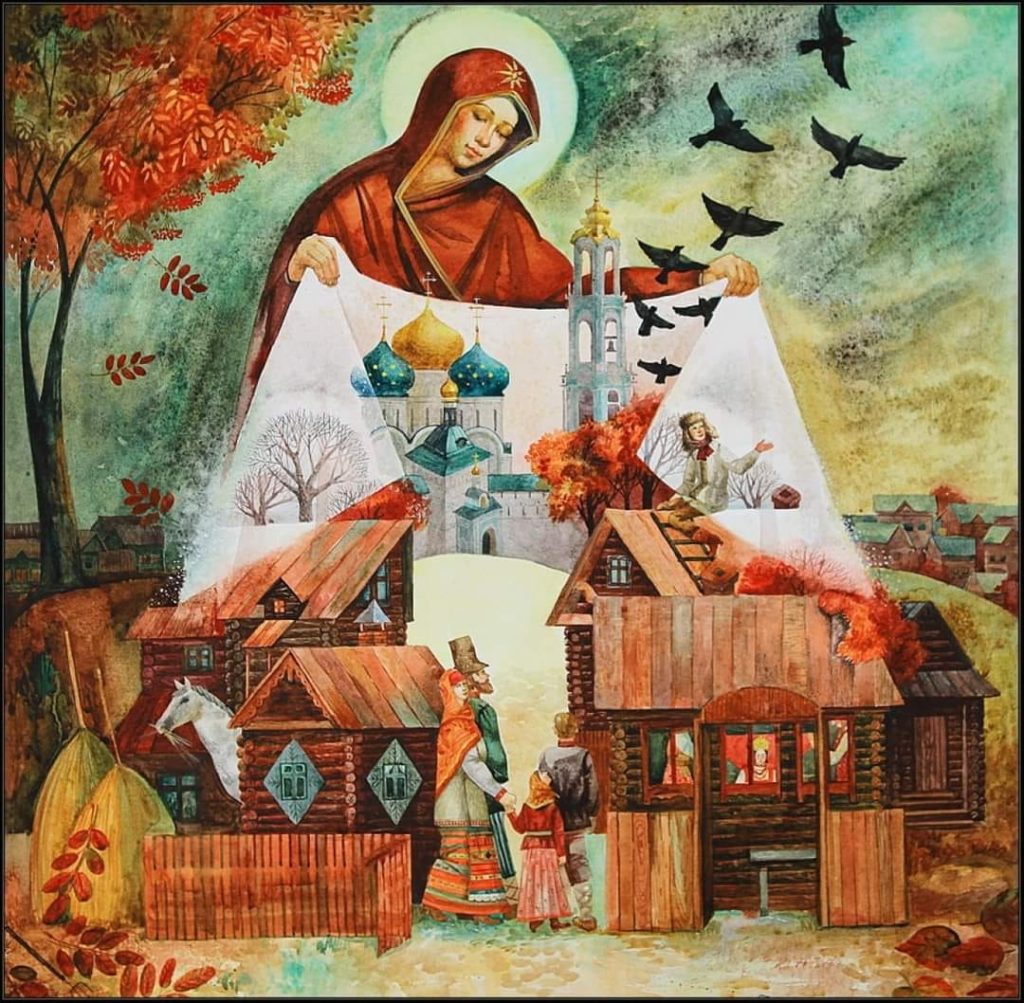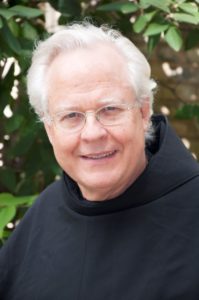 CAN I KNOW TRUTH?
CAN I KNOW TRUTH?
(Ch 2, 1: Ukraine as a Martyred People; Pope Francis is Accused of Russophobia)
The Church in the World
“Do not be afraid, Mary” (Lk 1:30).
“Behold, I am the handmaid of the Lord; let it be to me according to your word” (Lk 1:38)
Mary’s free decision to be the Mother of the Savior of the world turned fear to joy. She would hear her Son say many times to his disciples: Do not be afraid! She would witness the growing power of hostility and rejection built around her Son until the hour of the Cross when he was dying like a failure. “Woman, behold your Son!” (Jn 19:26). She would receive a new mission to become a mother in a new way: the mother of all who believe in her Son Jesus and wish to follow him. The joy of the Resurrection touched her heart and united her in a new way to the disciples. The Immaculate became the way to her Son’s Kingdom, the Star of the Sea.
Fear underlies the darkness of the Russia-Ukraine conflict. With the Mother of hope, we remember that during Vatican II the Church in the world finally became the real central problem! In a letter[1] dated 7 October 2022, Pope Emeritus Benedict XVI gives an opportunity to redress Vatican II. His three encyclicals: God is Love (2005), Saved in Hope (2007) and Charity in Justice (2009) offer a summation of his hope for the Church in the world as the real central problem. The Immaculate’s new mission and realization of this change at Vatican II is visible in an interview of Pope Francis on 28 November. “When I speak of Ukraine, I speak of martyred people. …There is someone who martyrs them. …I have much information on the cruelty of the troops that come… Chechens, Buryats, etc. …It is well known who I’m condemning. It’s not necessary that I state the name and surname.”[2]
The hostility and rejection around Jesus until the hour of the Cross is not over. Maria Zajarova, spokesperson of the Foreign Affairs Ministry of the Russian Federation, said that Pope Francis’ statement is beyond Russophobic. The Russian Ambassador to the Holy See, Alexander Avdeev, presented a formal complaint on behalf of his country that the Pope insinuates that Russian military men committed alleged atrocities in the course of the special military operations in Ukraine. The leader of the Chechen Parliament, Majomed Daudov, said: “I don’t know how the Pontiff justified his statements, but there is not a single fact that indicates that the representatives of our nations have committed a war crime.”[3] Americans are attentive to the news media since the fabricated motive and unjust invasion. They think critically.
The Russian invasion of Ukraine and attempts to justify it shout out. What do Americans think about the trauma of communism today? On 24 February I thought Communist inspired injustices in Europe were over. My naivete evaporated in a flash. I remembered what I had been studying.[4] Many Ukrainians said: “We were shocked, but not surprised.”[5] A dehumanized past as the Holodomor in 1932-33[6] has not healed deep wounds but has become weaponized.
While thinking about the Mother of the Savior at the foot of the Cross, think of the concept of the attack on Christendom in the mid nineteenth century. Christendom in the works of Kierkegaard, a Danish Lutheran, reflected the modern form of Christianity now infected with secularity. That meant forgetting Christ (and for us Catholics, his Mother) as constitutive of Christianity. Christ was being edited out and replaced by worldly wisdom. Christ was no longer a challenge to the comfortable nineteenth century situation. With Christ out of the picture, the culture was returning to being like the pagans of old. They sought wisdom wherever they might find it, possibly in the New Testament. Kierkegaard described the attack upon Christendom in the mode of a prophetic critique, one that was able to discern what is genuine and counterfeit.
Kierkegaard’s criticism of the Danish appropriation of European culture was to embarrass would-be pretenders in high culture. He despised the Danish epigones of Hegel [7] who did not believe in Christian afterlife. Marxism’s roots are here. Lenin, Stalin and others built their interpretation of Marxism into a totalitarian Soviet bloc, and no country could leave it. The reversal in 1989 never brought the perpetrators of atrocities to justice. The secret police established by Lenin were never disbanded. Stalin’s reestablishment of the Patriarchate of the Russian Orthodox Church in 1943 gave him control. As de facto dictator, Putin has made Russia a terror state again starting with the annexation of Crimea and the Ukraine conflict. He changed the name, but the underlying terror is renewed in plain sight. The invasion of Ukraine and attempts to validate it now target Pope Francis who has offered to mediate the conflict.
The attack against Pope Francis who constantly speaks to peace is wrong. Lies awaken trauma too difficult for older victims to express. After the end of the Soviet Union on Christmas Day 1991, the destruction of moral judgment remained. The rules of the game means to outwit the enemy by breaking any and all rules. Moral atrophy was spawned and has not left.
May the Mother of hope, the Star of the Sea shine upon us and guide us. Since Vatican II, a new situation has arisen for the Church, a process of the Church awakening in souls, not a preordained process. Crises in the Church and world as the Ukraine-Russian conflict, hide attempts to bleach out Christ, his Mother and her new mission from the Cross. Crises contribute to fear and doubt in a traumatized world. Quick interpretations often miss the mark. The victims of Communism shout warnings about totalitarianism! We listen to Christ: Do not be afraid!
Fr. Ed Ondrako, OFM Conv., Univ. of Notre Dame, eondrako@alumni.nd.edu
_______________________
[1] Pope Benedict, XVI, Letter to the President of Franciscan University of Steubenville, 7 October 2022. The occasion was an International Symposium dealing with his ecclesiology.
[2] Interview, America Magazine. 28 November 2022.
[3] Zenit, 30 November 2022.
[4] Between 1980 and 1994 I was privileged to do extensive study at Syracuse University. In 1989 and 1990, I visited and spoke with several people in what was then Czechoslovakia.
[5] Clemens Sedmak, A. James McAdams, eds, The Trauma of Communism (Lviv: The Catholic University Press, 2022), 9. The Nanovic Institute at Notre Dame offers free copies. nanovic.nd.edu
[6] Holodomor is the artificial starvation of Ukrainians by Stalin and massive loss of life.
[7] Hegel is the early nineteenth century thinker who remains in the forefront today.
Fr. Edward J. Ondrako, OFM Conventual
Research Fellow Pontifical Faculty of St. Bonaventure, Rome
Visiting Scholar, McGrath Institute for Church Life
University of Notre Dame
Solemnity of the Immaculate Conception of the Blessed Virgin Mary ~ December 8, 2022
